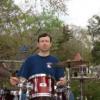
Posted
Moved this thread to here, because I feel this is a very worthy topic in itself. The following post started the discussion:
Seitennummerierung
Do., 31.10.2013 - 06:39 Permalink
I want to confess openly and come clean about something. I have been cheating on SFP recently. I know its bad but the generators in Rapid Composer are too sexy. The ability to tailor your phrases quick and easy is simply amazing. I searched for phrases and tried many things to get ideas into SFP. Its just more difficult than RC. RC does have its drawbacks and is crashing from time to time. SFP is rock solid and the ability to record midi into SFP is light years ahead as is most of SFP. But those generators. damn. sexy.
Do., 31.10.2013 - 10:57 Permalink
Not sure whether one single feature justifies buying another similar but definitely inferior piece of software.
Though Rapid Composer is much cheaper compared to Synfire, I stay with the latter.
Maybe Andre might develop a similar feature for Synfire, perhaps a paid upgrade (Synfire Ultra :) ). If it weren't too pricy, I think I'd probably buy an extension dealing with auto-generation of sensible content for Synfire rather than go the Rapid Composer route.
Do., 31.10.2013 - 15:39 Permalink
For my first experiments with algo music back in 1992, I used a very early predecessor of Synfire, named "GENERATOR". I think that says it all. I was always intrigued by the idea of generating music since the late 80's. I'll post a few examples, If anyone's interested.
The only reason generators are not yet implemented for Synfire is that I didn't yet find the final solution to make them better than anything else out there. They are definitely still on the agenda. I want to avoid the typical flaws and shortcomings of generators:
- Generators tend to create artificial, random-like, repetitive patterns that do not sound like music performed by a human player. While that is ok for some electronic styles, it does not help much for all the other styles out there.
- Generators tend to create patterns that, after some time of getting used to, all seem to sound the same. That's because the underlying mechanics are recognized by the listener. Cognitone would probably be asked to provide a new generator every month or so.
- Generators are specific to a particular style or purpose. It is difficult to make a generator that can adapt to ANY style and ANY purpose. If the user could code this style and purpose ia scripts, that would be perfect. I want generators that can learn from examples and imitate a particular style you feed them.
I've done a lot of research in these directions already and am really looking forward to working on this again.
Do., 31.10.2013 - 17:15 Permalink
I suggest trying the Rapid Composer demo at least. These generators offer hundreds of musical parameters that are far more than a one trick style monkey. The ability to define rhythm and harmonic detail is something different here. With SFP i find myself going through hundreds of phrases. then trying to play something and not being proficient enough to pull it off. With the generators in RC its possible to use what theory i do know and get something more of what im looking for.
Do., 31.10.2013 - 17:18 Permalink
Oh my....Joseph shillenger generators anyone?
Do., 31.10.2013 - 17:24 Permalink
actually RC contains shillenger generators.
Do., 31.10.2013 - 18:35 Permalink
Generating melodies with machines is also something I am very interested in. In the early 70's I used several analog modular sequencers with switching logic modules, (jump between 3 layers of a 16 stage sequencer and also a 3 X 8 sequencer, plus using Sample/Hold modules) (ARP 2500, 2600, MOOG and ARIES modular synthesizers).
I also had access to the first EMS digital sequencer, and a custom built 4 x 128 steps by Bob Moog himself, for UMass, Boston.. It was a torturous affair, you would play one note on keyboard, toggle a switch, then advance sequencer to the next step. You had to do this for each note, and then again for each layer.. It would take an hour or more to fill the sequencer, patchchord it to the proper modules.. It usually made pretty repeating loops. But one day I came up with this beautiful, delicate melody, that sounded like someone actually played it. I was hooked. I also tried a couple of computer music generation programs that ran on a Mainframe that was 75 miles away in Amherst, MA.. I even wrote a crude melodic generation program (in basic and Fortran).. They were not very successful.
I found one of Joseph Shillenger's books in a Boston Library. I kept it and studied it for months, and tried to emulate his work.. At that point,, the melodies were too robotic sounding. In fact Berklee music at one point had a class or two making use of his research. I found the "Shilllenger system of music" very interesting, but it was tvery technical, and I had a hard time grasping it and ultimately found this was not the vein of music I wanted to work in.
There was also this 'proper computer generated music by colleges', Wendy Carlos, and then the the kids who heard the Who's first sequencing work on one of their albums. You had to be in one of those camps, certainly the college professors, looked down on the crass attempts of rock bands using machine generated music parts.
I must also confess, I've been using Band In A Box for over 20 years.. Don't use it a lot.. But it can and does sometimes come up with interesting melodies. Sometimes the bass will be nice.. To get solo's out of it, takes more time and patience... And yes, after a while,, I hear similarites and melodic intervals, that are similar to something I did earlier. I once had to do 26 children's songs all in different styles, within two weeks.. That was my first project with Band-in-a-box.. The music came out wonderful.. I also did music for Omnimusic Library.. Imagine my surprise when I hear some of Band-in-a-box's material on TV commercials... I had also generated the a very similar melody using the melody style.
What I do with Band In A Box now is to generate several melodies, or solos, 3 or 4.. Import them into Logic and edit them, into what I want.. Other times I import B-I-A-B's output into Synfire Pro, and work with that as source material.
My point is that is where the human decision making comes in.. You look at what was generated and you modify. I often play along with it several times. Then mute the channel and play my interpretation. Thus I am learning and creating at the same time.. Often I patch together sections of different takes, and I've become good at knowing where/how to edit the two different takes into one cohesive whole, where to change a few notes to make the thing work.
Having used Tyros 3 - 4 (and now 5 coming soon, already ordered). I have studied and mastered some of it's processing part generating tricks, I can create better parts by hand, learning from that..
I would be LOVE it, if SFP had some beta melodic generators,, and it would not bother me in the least, if it was still a little robotic or repetitious. One would edit the melody himself (why let the SFP have all the fun?). We would be learning, creating more and perhaps our feedback, might inspire Andre to new heights.
Do., 31.10.2013 - 18:40 Permalink
Hi
A very very very interesting post
I have seen now a video of Rapid composer about generators melodies & is amazing tool
I would love to have these tools in Synfire Pro
Synfire Pro now is able to transform the phrases adapting them harmonically but there are not generator phrases (melodies)
I think would be the perfect complement
We miss generator phrases,yes
A new dimension would be opened in the magic of synfire,yes of course
Do., 31.10.2013 - 18:53 Permalink
Yes I have RC, and it yes does have shillenger generators- I have and support both RC and SF.
Berklee should have a class or two about schillenger...http://www.berklee.edu/bt/122/connection.html
Totally agree with mark, go BETA ...so what if its mechanical? It really can add another level to the composition, which in can be really inspiring.
Fr., 01.11.2013 - 01:09 Permalink
I have RC too, but I don't use its phrase generators. I'm not excited by phrase generators anyway. The general issue with them is: Whether we're talking about fairly simple generators (like at RC) or more sophisticated ones (like, say, at Symbolic Composer), the outcome is mostly either "generic" or "algorithmic" sounding stuff. In any case quite unmusical and rather useless. I'm really not keen to see something like that in Synfire.
I definitively prefer the "transforming approach" of Synfire, i. e. phrases are imported and transformed according to your own ideas. In this way, the necessary "musical substance" is there from the beginning and does not need to be generated by the software. I mean, the further developement should maintain this approach.
Within this approach, there is still enough to develop. Currently Synfire transforms phrases mainly in terms of pitch and harmony. That is its strength. In terms of transforming the rhythmic structures of phrases one could imagine much more. The existing parameter "Rhythm" is not much more than a "groove quantization" that also many DAW's offer. And the "Step" parameter produces only rarely musically meaningful results.
There was already a discussion here about this topic, btw. This was the thread:
(https://users.cognitone.com/de/content/can-synfire-do-rhythm-what-it-ha…)
To the statements in the opening post of that thread I can only agree. Synfire should get more powerful in terms of rhythmic transformations. Suggestions for this one might get from the good old Onyx Arranger. This (unfortunately no longer further developed software) already had some very remarkable features in this regard:
Fr., 01.11.2013 - 01:33 Permalink
actually the melody generator in the 5th tutorial video
seems quite musical/ useful imo.
Fr., 01.11.2013 - 01:51 Permalink
I would also be really interested in generators. I tried learning Schillingers material for myself but it was too mathematical for my mindset. I also have RC but find it to be somewhat clunky and uninspiring although it has some nice features such as the generators.
I also have the latest version of Symbolic Composer which I am fascinated by but too intimidated to really learn. With my busy schedule as a seminar presenter i simply do not have the time to learn all of the complexities of Symbolic Composer. I love the new SC interface with Apples' mainstage 3 however.
Synfire Pro is my composition vehicle of choice hands down. I think Generators based on Schillinger and perhaps Slominsky would be a fantastic edition to Synfire . I am so excited by Synfire's capabilities although I have much more to learn. I cannot wait to see what Andre comes up with next. I am a fan and a loyal customer for life!
Fr., 01.11.2013 - 03:31 Permalink
This video speaks volumes. http://www.youtube.com/watch?v=DPeee0I0pLE
hundreds of parameters are available for endless musical possibilities. I have a beta version with the melody generator i got from the maker of this video who works with the dev. The program itself needs alot more work. A precount to record midi doesnt yet exist. The great thing about the idea tool is that you can save a group of generators as a preset and instantly get back ideas for further tweeking.
Fr., 01.11.2013 - 17:39 Permalink
Thanks for the video link.
The feature is nice and well done, although I feel that tweaking so many parameters only to get a few measures of simple legato notes moving up and down seems a bit disproportinate to me.
I might be biased, because as a singer I am familiar with improvising melodies, but simply playing those few notes on the keyboard would be a lot easier. There is no difficult rhythm or accentuation. It's just note after note on even times. By the time all those parameters are set up and fiddled with, I have played 20 or so takes with different melodies by hand. Then I can move them up/down/reverse/etc with Synfire.
The point probably is to get something nice and unexpected as a surprise. But I would rather prefer to get that more quickly without all those parameters.
The generator I dream of would generate parts for multiple instruments as a larger unit (container), build a theme, variations, follower voices, questions & answers and such. It should also do the same for rhythm. It would use human compositional techniques and natural performance metrics rather than math.
If I had the time now, I'd start with it right away ;-)
Fr., 01.11.2013 - 18:07 Permalink
I share and support your dream. This vision of yours is magnificent! If you have the vision I am sure you can achieve it! We all support you and wait happily for the day when your vision is manifested for our mutual enjoyment!
Fr., 01.11.2013 - 18:11 Permalink
I definitively prefer the "transforming approach" of Synfire, i. e. phrases are imported and transformed according to your own ideas. In this way, the necessary "musical substance" is there from the beginning and does not need to be generated by the software.
Agreed. Synfire's generators would most likely be based on transformations anyway.
It would be cool if musical substance /could/ be generated, but that's almost impossible to do even in theory. Just think of the thousands of musical styles and genres history came up with until to date and the little nuances that seperates them from each other.
Simple linear melodies can be covered by parameters, as RC nicely shows. Once rhyhtm, phrasing, structure and interaction gets involved, complexity increases exponentially.
Fr., 01.11.2013 - 18:29 Permalink
;-) The generator I dream of would generate parts for multiple instruments as a larger unit (container), build a theme, variations, follower voices, questions & answers and such. It should also do the same for rhythm. It would use human compositional techniques and natural performance metrics rather than math.
If I had the time now, I'd start with it right away
Wow, that sounds really interesting. It's something completely different from what I know so far of generators. In this case, I'm for generators, too. You should start right away when you get back from the moon ;-)
Fr., 01.11.2013 - 18:34 Permalink
I understand your bias. I prefer SFP for many reasons. To dismiss this as a simple toy that anyone could have played is going to far. The simple melody he generated can be tweeked almost endlessly. I created something like this in about 10 minutes after receiving the beta. At some point its not about how hard or simple it is to play. it is about building content and trying out new ideas. Currently we sift through hundreds of phrases and alter them. Why not tweek some parameters and get something new everytime. Its those roll of the dice moments when something unexpected comes up that is very usable and spurs you on to create more. I used 10 generators and had some major things going on yesterday. That kind of power is amazing. sure you can play a melody or two over those chords that will sound good. The video only shows 3 or 4 lines. You can create 10 part harmonic flow in that same time, then generate new material with a keystroke. We are all trying to generate ideas with the tools we have. The melody generator is only in the beta phase. Sure it would be amazing to have whole songs generated for you, thats for something more like Symbolic Composer. btw SCOM is at version 7 and looks amazing but the maths are keeping me away for now.
So for now i will generate some phrases to use in SFP. prototyping the prototype...
Fr., 01.11.2013 - 19:38 Permalink
I wonder Andre if the roll the dice randomization tool in Artmatic 5 might be a helpful template.
Have you seen that software, its from the same company that makes Metasynth
Fr., 01.11.2013 - 19:40 Permalink
SCOM is formidable and intimidating . I see it as useful for teaching me how to think about musical forms more precisely but the math factors are intimidating. Spend too much time with SCOM and you might have to start speaking with a LISP!
Fr., 01.11.2013 - 20:05 Permalink
Why not tweek some parameters and get something new everytime. Its those roll of the dice moments when something unexpected comes up that is very usable and spurs you on to create more.
That's true. I'll keep this in mind.
Fr., 01.11.2013 - 20:18 Permalink
Wow. Artmatic 5 looks amazing. To some extent, yes, generating pictures is similar to generating music.
I've worked with SCOM some 15 years ago on a Mac Quadra. As a formally educated computer scientist, LISP is one of my natural languages, like Prolog, Simula, Smalltalk, Scheme and other languages regularily used for AI. Still SCOM was a challenge for me. Mainly however because turning math into music is generally difficult, unless one loves the artificial "fractal" and "math" feel that it often has to it.
Fr., 01.11.2013 - 20:27 Permalink
Here's some of the stuff I composed with my early "GENERATOR" back then:
(https://soundcloud.com/czesanne)
The following tracks are 100% generated and copy/cut/paste edited only:
(https://w.soundcloud.com/player/?url=https%3A//api.soundcloud.com/track…)
(https://w.soundcloud.com/player/?url=https%3A//api.soundcloud.com/track…)
(https://w.soundcloud.com/player/?url=https%3A//api.soundcloud.com/track…)
Just to prove that I really love generators ;-)
Fr., 01.11.2013 - 22:37 Permalink
Rapid Composer has Schillinger generators
Fr., 01.11.2013 - 22:39 Permalink
Maybe you might want to invest in a copy of Artmatic 5 to look at their random generators. It is literally represented as rolling dice that you click on to generate a new result. I bet you could do something with this
Fr., 01.11.2013 - 22:43 Permalink
SCOM's version 7.2 allows for you to click on and listen to the result of each block of code that has a tonal resultant. It's great to be able to use all of your software libraries with it as well. Still the best of everything is represented by Synfire Pro for me.
Fr., 01.11.2013 - 23:58 Permalink
Play with nodal http://www.csse.monash.edu.au/~cema/nodal/ :)
Problem with all this generated artificial music that it is complex to master and to get a desired result..that is my impression/idea.
With the same effort you can try to study existing music structures ( styles , orchestration ..) and work with the phrases
I am listening to nodal now ...on the background
Still very interesting this subject.
Nova3 – Generative Sequencer VST
Sa., 02.11.2013 - 09:56 Permalink
Nobody's mentioned my two secret weapons. Good! : )
Sa., 02.11.2013 - 11:11 Permalink
Hi Bagatell ..i don't get you ?
Seitennummerierung









